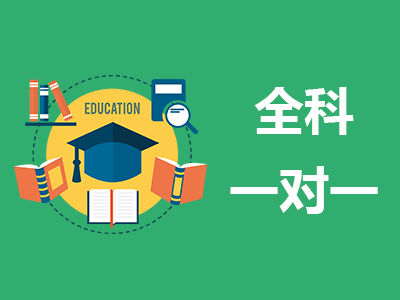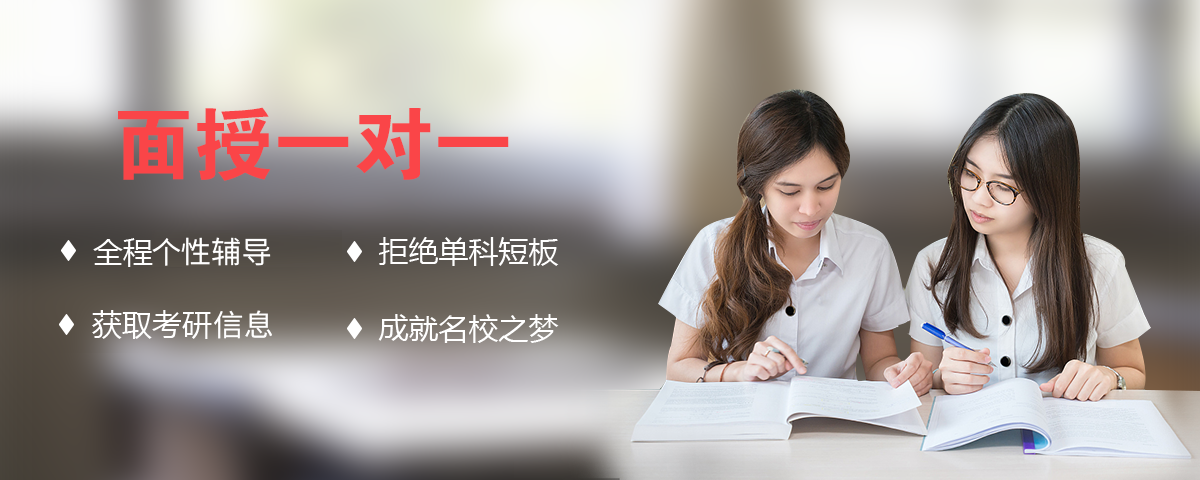在考研英语中,阅读分数占比很高,那么,如何提高阅读分数呢?对于备考2016考研的同学们,在平时的复习中一定要拓展阅读思路,各类话题都要关注,这样才能在整体上提升考研英语阅读水平!下面是新祥旭考研准备的精品阅读,分享给大家。
IF EUROPE'S far-right parties do as well as many expect in May's European election, no worldleader will be happier than Vladimir Putin. For a man who claims to be defending Russian-speakers in Ukraine against fascists and Nazis, the Russian president has some curiousbedfellows on the fringes of European politics, ranging from the creepy uniformed followers ofJobbik in Hungary to the more scrubbed-up National Front in France.
倘若在不久的五月欧洲大选上,欧洲右翼党派的表现能如很多人所期望的那样,那么普京应该是最为此而开心的领导人。俄总统曾表示自己会支持护卫在乌克兰对峙法西斯和纳粹的俄国民众,他也由此获得几位处于欧洲政治边缘的特殊盟友,包括“为了更好的匈牙利运动”(Jobbik)的团结一致的追随者,和更透明的法国民族阵线。
There was a time when Russia's friends were principally on the left. There are still some pro-Moscow communists, for instance in Greece. But these days the Kremlin's chums are mostvisible on the populist right. The crisis in Ukraine has brought out their pro-Russiansympathies, most overtly when a motley group of radicals was invited to vouch for Crimea'sreferendum on rejoining Russia. The “observers” included members of the National Front,Jobbik, the Vlaams Belang in Belgium, Austria's Freedom Party (FPO) and Italy's NorthernLeague, as well as leftists from Greece and Germany and an assortment of eccentrics. Theydeclared that the ballot, denounced by most Western governments as illegitimate, had beenexemplary.
曾一度,俄罗斯的盟友主要为左翼分子。现在部分地区仍有亲俄共产主义者,希腊就是其一。而如今克里姆林宫的密友多属于民粹派。乌克兰危机激起他们的亲俄情绪,且当一大帮混杂的激进分子受邀担保有关克里米亚重返俄罗斯的公投一事时,这种亲俄情绪达到高潮。这些所谓的“观察家”有来自法国民族阵线、“为了更好的匈牙利运动”、比利时弗拉芒利益党、奥地利自由党和意大利北党的,还有希腊与德国的左翼分子及一伙各式各样的奇葩。他们宣言,被多数西方政府谴责为非法的选举早已为典范。
So what does Europe's far right see in Mr Putin? As nationalists of various stripes, theirsympathies might have lain with their Ukrainian fellows fighting to escape Russian influence. Infact, argues Peter Kreko of Political Capital, a Hungarian think-tank, beyond favourabletreatment in Russian-sponsored media, many are attracted by Mr Putin's muscular assertionof national interests, his emphasis on Christian tradition, his opposition to homosexuality andthe way he has brought vital economic sectors under state control. For some, pan-Slavic ideasin eastern Europe play a role. A common thread is that many on the far right share Mr Putin'shatred for an order dominated by America and the European Union. For Mr Putin, support fromthe far right offers a second channel for influence in Europe.
那么,欧洲极右派究竟从普京身上看出了什么?作为各国的民族主义者,他们对俄的怜悯之心或许是因乌克兰伙伴努力挣脱俄罗斯影响而起。实际上,匈牙利诸葛亮——政治资本研究所的研究主任彼得·科瑞克(PeterKreko)发表说,多数人支持俄罗斯,不止因为受到俄罗斯媒体友好相待,还因为受到普京的鼓舞,他信誓旦旦地表态一切以国家利益为重,强调发扬基督传统美德,反对同性恋,且成功实现国家对重要经济行业的有效控制。对另外一些人而言,东欧的泛斯拉夫主义也起到一定促进作用。当然有一重要连线就是许多人和普京一样憎恶当下由美国和欧盟掌控的格局。对普京而言,有了极右翼分子的支持,俄罗斯又多了一种影响欧洲的新途径。
The flirtation with Russia first became apparent in eastern Europe some years ago, despitememories of Soviet occupation. Jobbik, which took 20% of the vote in Hungary's recentelection, denounced Russian riots in Estonia after the removal of a Soviet war memorial in2007. But a year later it backed Russia's military intervention in Georgia. Far-right parties inBulgaria and Slovakia also supported Russia. Since then, Russian influence has becomeapparent in western Europe, too. Marine Le Pen, leader of the National Front, has been givenred-carpet treatment in Moscow and even visited Crimea last year. At December's congress ofItaly's Northern League, pro-Putin officials were applauded when they spoke of sharing“common Christian European values”. Among those attending were three nascent allies: GeertWilders of the Netherlands' Party for Freedom, Heinz-Christian Strache of the FPO, and Ludovicde Danne, Ms Le Pen's European adviser.
最先和俄罗斯套近乎的是东欧地区,发生于数年前,尽管它有过被苏维埃侵占的历史。不久前的匈牙利选举大会上,选民占20%的“为了更好的匈牙利运动”曾在07年当全国已然忘却苏维埃对其的侵占史后,公开谴责俄罗斯在乔治亚州发动的暴乱。然而,一年过后,格鲁吉亚转而赞同俄军事干涉乔治利亚。保加利亚和的极右党同样也支持俄罗斯。从此,俄在西欧的影响力也已显露无疑。 法国民族阵线领袖马琳·勒庞(Marine Le Pen)去年已在莫斯科受到红毯待遇,甚至还访问了克米利亚。12月,意大利的北方联盟国会上,当亲普京官员发言共同拥护欧洲基督教价值观时,博得阵阵掌声。当时的参会人员为三大新生盟友:荷兰右翼自由党领袖威尔德(Geert Wilders)、奥地利自由党领袖海因茨.斯特拉赫(Heinz-Christian Strache)和马琳·勒庞的欧洲顾问Ludovic de Danne(没查到译名)。
For Mr de Danne the parties share an aversion to the euro and, more widely, to the EU'sfederalist dream. They oppose globalisation and favour protectionism. They seek a “Europe ofhomelands”, stretching from Lisbon to Vladivostok. As for Ukraine, he calls the revolution inKiev “illegitimate” and says the referendum in Crimea was justified by the pro-Russiansentiment of the Crimean population. By attaching themselves to the EU and America,Ukraine's new rulers expose their country to IMF oppression and the pillage of its naturalresources. Such dalliance with Mr Putin may create trouble for Mr Wilders, who sees the EU as amonster but is a strong supporter of gay rights. According to Mr de Danne, the Euroscepticalliance has agreed to co-ordinate only on internal EU matters, not international affairs.
在(Mr de Danne)看来,这些党派均憎恶欧元,或说得更广些,均不认同欧盟未来的联邦蓝图。他们反对全球主义,支持保护主义。他们在寻找“欧洲家园”,该版图横跨里斯本至符拉迪沃斯托克(俄罗斯一城市)。至于乌克兰,他称的基辅革命(乌克兰共和国首都)是非法的,克里米亚的公投因本国的亲俄情感是合理公正的。乌克兰新任领导人亲附欧盟与美国,实质上是置本国于国际货币基金组织压迫之下,置国内自然资源于遭掠夺境地。如此与普京拉近关系,之后或许会给那位视欧盟为禽兽却大赞同性恋关系威尔德(Mr Wilders)带来诸多麻烦。据(Mr de Danne)透露,反欧联盟已达成协议,仅就欧盟内部事务展开合作,国际事务不在合作范围之内。
A degree of admiration for Mr Putin also stretches to Britain's UK Independence Party (UKIP).It sees Ms Le Pen and Mr Wilders as too tainted by racism and is parting ways with theNorthern League. But UKIP's leader, Nigel Farage, while insisting he dislikes Mr Putin's methods,thinks the Russian leader has skilfully wrong-footed America and Europe. The EU, he declared ina televised debate, “has blood on its hands” for raising Ukraine's hopes of EU membership andprovoking Mr Putin. Mr Farage's critique is perhaps a way of attacking the EU's enlargementpolicy, which is now linked by many to immigration. Yet it is also an implicit admission that theclub remains attractive to those outside it.
追捧普京热潮已袭至英国独立党(UKIP)。它认为马琳·勒庞 and 威尔德已被民族主义冲昏头脑,正和北方联盟分道扬镳。英国独立党领袖奈杰尔·法拉奇(Nigel Farage)尽管不认同普京的处事方法,但仍觉得这位俄罗斯总统巧妙地将美国和欧盟打得措手不及。一次,他在电视辩论上曾批判欧盟“双手沾满血腥味儿”,因为是它挑起俄米争端进而引发战争,是它鼓吹乌克兰心生独立入欧的想法并迫害普京。奈杰尔·法拉奇如此批判欧盟,或许意在攻击欧盟的扩张策略,这种策略现多和移民相关联。然而,无可否认的是,正如城外人总是想往城内挤,许多非欧盟成员仍是热切希望加入该组织。
Hello, Comrade
你好,战友
Mr Putin is too clever to rely only on Europe's insurgent parties, successful as some may be. Soas well as cultivating anti-establishment groups, he has worked to entice national elites. WhileJobbik advocates closer economic relations with the east, Hungary's Prime Minister, ViktorOrban, is already doing it. A veteran of the struggle against communism, embodying thecatchphrase “Goodbye, Comrade”, Mr Orban recently signed a deal with Russia to expand anuclear-power plant, financed by a 10 billion ($14 billion) Russian loan. He has sought toweaken European sanctions against Russia. In Italy the Northern League's leader, MatteoSalvini, may shout “viva the referendum in Crimea”, but Matteo Renzi, the centre-left primeminister, has also been assiduous in resisting tough sanctions.
虽然单靠欧洲那些叛党,普京或许就能实现自己的目标,但他非常精明,在这过程中还动用了其它力量。一方面鼓吹建立反欧盟组织,另一方面还诱使国家精英为其所用。尽管还在提议加强与东欧的经济联系,匈牙利总理维克多·奥班(Viktor Orban)早已将其付诸实践。维克多·奥班驰骋打倒共产主义战场多年,充分阐述了“再见,战友”这一短语。近期,他与俄签署了扩建核发电站的协议,将得到俄100亿英镑(140亿美元)的经济援助。他竭力削减欧盟对俄罗斯的国际制裁。意大利北方联盟领袖马特奥·萨利维尼(Matteo Salvini)也许会呼喊“克米利亚公投万岁”,但中左翼总理马特奥·兰奇(Matteo Renzi)也在奋力抵制严格的国际制裁。
Anti-EU parties will no doubt become stronger and noisier, but they lack the numbers and thecohesion fundamentally to change EU business in the European Parliament. Their effect will bemore subtle. They may force mainstream parties in the parliament into more backroom deals,deepening the EU's democratic deficit. Their agitation is more likely to influence nationalpolitics and to push governments into more Eurosceptic positions. And they will provide an echochamber for Mr Putin, making it harder still for the Europeans to come up with a firm and unitedresponse to Mr Putin's military challenge to the post-war order in Europe. There is more atstake in May than a protest vote.
反欧各党必然会逐日强大,反对声音也会日渐加大,但他们的盟友太少,且眼下缺少彻底改变欧盟大事在欧洲议会地位的凝聚力。但,他们也将产生更微妙的影响力。他们或许能够迫使议会主要党派进行黑箱操作,加重欧盟民主危机。而且,他们这种不满情绪很可能会波及各国政治,诱导各政府开始反欧。与此同时,他们还会提供普京“回音室”,这样使得欧洲更难坚定一致地对抗普京敢于改变欧洲格局的军事行动。五月,不仅仅只是抗议投票遭遇重重危机。


























